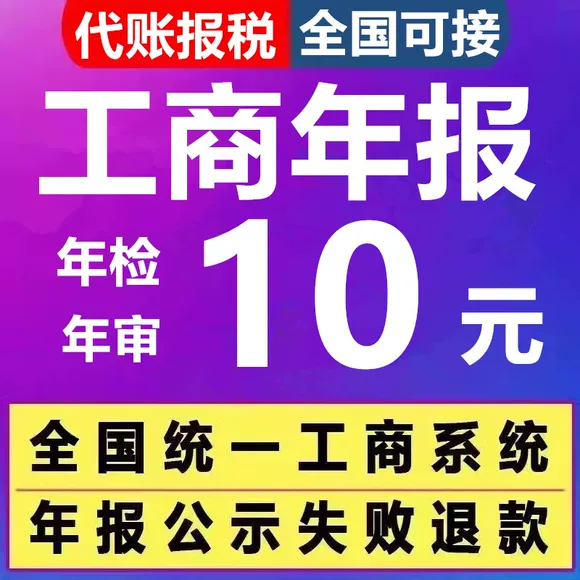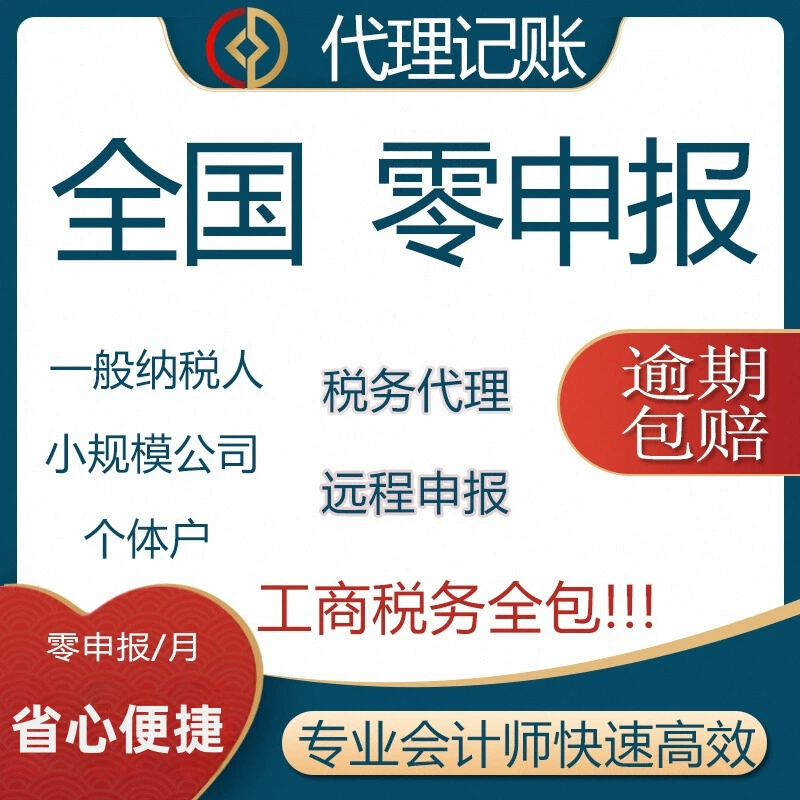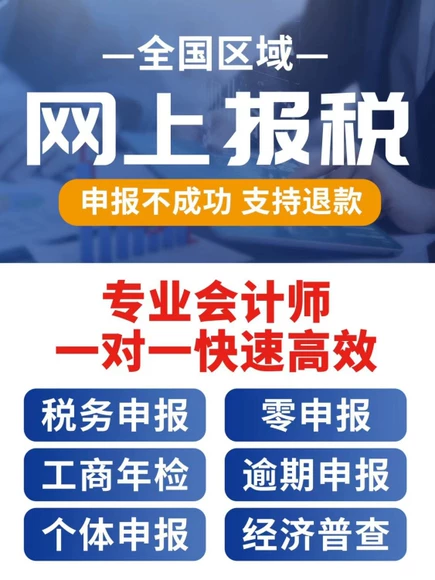宁波市期末九校联考 高二英语试题
本试卷分第Ⅰ卷(选择题)和第Ⅱ卷(非选择题)。满分150分,考试时间120分钟。
注意事项:
1.答第Ⅰ卷前,考生务必将自己的姓名、准考证号填写在答题卡上。
2.选出每小题答案后,用2B铅笔把答题卡上对应题目的答案标号涂黑。如需改动,用橡皮擦干净后,再选涂其他答案标号。不能答在本试卷上,否则无效。
第Ⅰ卷
第一部分:听力(共两节,满分30分)
第一节:(共5小题;每小题1. 5分,满分7. 5分)
听下面5段对话。每段对话后有一个小题,从题中所给的A、B、C三个选项中选出最佳选项。听完每段对话后,你都有10秒钟的时间来回答有关小题和阅读下一小题。每段对话仅读一遍。
1. What time was the woman supposed to arrive?
A. At 9: 15 B. At 9: 30. C. At 9: 45.
2. What is Rachel going to do this Wednesday?
A. Go to a wedding. B. Have a birthday party. C. Go to a graduation party.
3. What is the man?
A. A poet. B. A teacher. C. A reporter.
4. What match is the man watching now?
A. Diving. B. Swimming. C. Table tennis.
5. Where does the conversation probably take place?
A. At a hotel. B. In a restaurant. C. At the airport.
第二节:(共15小题;每小题1. 5分,满分22. 5分)
听下面5段对话或独白。每段对话或独白后有几个小题,从题中所给的A、B、C三个选项中选出最佳选项。听每段对话或独白前,你将有时间阅读各个小题,每小题5秒钟;听完后,各小题将给出5秒钟的作答时间。每段对话或独白读两遍。
听第6段材料,回答第6、7题。
6. What are the speakers mainly talking about?
A. Buying some furniture. B. Making use of space. C. Preparing for a party.
7. What are the speakers going to put in the room?
A. Some flowers. B. Some tables. C. Some candles.
听第7段材料,回答第8至10题。
8. Why does the woman look great?
A. Because she often works out.
B. Because she is always strict with herself.
C. Because she takes work home daily.
9. What does Anna do?
A. A chef. B. A boss. C. A trainer.
10. What does the man plan to do next Monday?
A. Finish his project. B. Take yoga courses. C. Attend a lecture.
听第8段材料,回答第11至13题。
11. What is the man doing now?
A. Having a holiday. B. Looking for a hotel. C. Booking a ticket.
12. Which of the following will the man choose?
A. Ocean Waves Resort. B. Farmhouse Getaways. C. Sparkling Springs.
13. Where is the parking lot of the hotel?
A. Opposite the hospital. B. At the end of the road. C. Near the river.
听第9段材料,回答第14至16题。
14. What’s BT1?
A. A subway. B. A highway. C. A high-speed train.
15. What advantages does China have over Britain in high-speed train projects?
A. Lower cost and faster speed of completion.
B. Smarter design and better quality.
C. Less labour and potential problems.
16. What does the man think of Chinese projects?
A. Average. B. Frightening. C. Impressive.
听第10段材料,回答第17至20题。
17. What does the speaker mainly talk about?
A. Three types of travel.
B. The pros and cons of travel.
C. The advantages of solo travel.
18. Which of the following does the speaker mention?
A. Travelling with companions lowers the costs.
B. Travelling alone means more moments of loneliness.
C. Being a solo traveller makes it easier to make friends.
19. Who is Charlotte Kelly?
A. A retired programmer.
B. A host of the radio show.
C. A guest on next week’s show.
20. What will be talked about next time?
A. Ideal destinations for solo travellers.
B. How to build confidence and social skills.
C. Ways to make friends during solo travel.
第二部分:阅读(共两节,满分50分)
第一节:(共15小题:每小题2.5分,满分37.5分)
阅读下列短文全科试题免费下载公众号《高中僧课堂》,从每题所给的 A、B、C、D 四个选项中选出最佳选项。
A
Founded in 1887, The Writer aims to expand and support the work of professional writers with a straightforward presentation of industry information, writing instruction and professional and personal motivation. If you’re passionate about books, authors, and writing, you’ll find everything you need within our pages 12 times a year.
Our editors are interested in query letters(投稿信) on concrete topics written by emerging and experienced writers. We are looking for clear takeaway for our readers: What can they learn to improve their writing or advance their careers? What specific how-to tips and strategies will accomplish this?
In addition to a fleshed-out outline of your story idea and an estimated word count, queries should include a brief description of your background. For personal essays, we prefer writers to attach or paste the finished piece in their query email. We do not accept material that has been previously published in any form in print or online.
Queries should be sent by e-mail to tweditorial@madavor.com. All queries sent to any other address will be deleted.
Unfortunately, we receive hundreds of letters every week and cannot respond to all of them. If you haven’t heard from us in two weeks, please feel free to move your submission(投稿)to another publication. If you’re unfamiliar with our magazine, we recommend reading a few issues, subscribing, or at least signing up for our newsletter to get a feel for the kind of work we publish.
Article lengths vary widely from 300 to 3,000 words.
We prefer electronic queries. Please do not mail queries.
Payment varies.
Thank you for considering a submission to The Writer magazine, the voice of imagination, creation, and publication since 1887.
21. According to the passage The Writer magazine .
A. provides practical suggestions on a writing career.
B. responds to all the query letters from the readers.
C. introduces successful writers and their works only.
D. prefers handwritten queries to electronic ones.
22. When sending a query letter, a contributor must .
A. answer the three questions first B. attach a printed version of the story
C. include a brief self-introduction D. subscribe to the magazine
23. What is this passage mainly about?
A. Magazine recommendations. B. Submission guidelines.
C. Published stories. D. Subscription information.
B
McDonald’s is partnering with the White House to promote vaccination(疫苗接种)information on its coffee cups as hesitancy grows about taking the potentially life-saving shot.
Beginning in July, customers in the United States will see redesigned McCafe cups and delivery seal stickers that features “We Can Do This”,a slogan(口号)created by the US Department of Health and Human Services to promote vaccine confidence. It also includes a website address (vaccines.gov) that directs people to nearby appointments and safety information.
The promotion will last several weeks and the slogan will be printed on roughly 50 million cups. Prior to that, McDonald’s said its billboard in New York’s Times Square location will also display vaccine information beginning in mid-May. “We all want to protect ourselves and our loved ones and be together with our communities again,” said Genna Gent, McDonald’s USA vice president for global public policy and government relations. Xavier Becerra, the Health and Human Services secretary, said, “The public-private partnership will help more people make informed decisions about their health and learn about steps they can take to protect themselves and their communities.” McDonald’s wasn’t paid by the government for this promotion, according to a person familiar with the campaign.
The “We Can Do This” campaign was announced in March and aimed at encouraging hesitant Americans to get vaccinated. In a Kaiser Family Foundation survey, 47% of people who say they want to “wait and see” before being vaccinated said paid time off to get it would make them more likely to do so, and 39% said a financial allowance of $200 from their employer would work. The US vaccination rate has declined from its peak last month, pushing officials to work out new ideas to further encourage the cautious, hesitant and inaccessible to get vaccinated. So far, more than 150 million people in the US have received at least one dose(剂量) of the vaccine.
24. Why does McDonald’s redesign its Mc Cafe cups?
A. To promote its coffee sales. B. To encourage people to get vaccined.
C. To raise public safety awareness. D. To bid for government investment.
25. What do we know about the McDonald’s campaign?
A. The slogan is to be displayed in mid-May.
B. The government provides financial support.
C. McDonald’s doubles its efforts for public health.
D. McDonald’s assists people in making appointments.
26. What can be inferred about the vaccination rate?
A. Employers can play a vital part. B. Government efforts were in vain.
C. People’s busy work slows it down. D. Next month will witness an increase.
27. Where is the text probably taken from?
A. A government document. B. An advertisement.
C. A tourist brochure. D. A newspaper.
C
A stuffy nose is usually nothing to worry about; it’s mostly just uncomfortable, with varying symptoms. “For some people, it’s having something sticky in the nose or a feeling that the airways are blocked and there’s a declining sense of smell,” says Dr. Ahmad Sedaghat, a director of Rhinology at the University of Cincinnati College of Medicine.
Actually, COVID-19 might cause a stuffy nose in some cases, although it wasn’t on the original list of COVID symptoms. Classic symptoms of the SARS-CoV-2 initial variant(变体)included fever, a cough, body aches and pains, shortness of breath and a loss of taste and smell-without a stuffy nose. However, the Delta variant is different. It’s often associated with symptoms of a common cold, like a stuffy or runny nose and sore throat. But there is something that needs to keep in mind.
One is that the Delta variant still results in the loss of taste and smell, and it’s far-reaching. Sedaghat says that’s because the COVID virus can infect the taste buds. “When you lose smell with a stuffy nose, you can still taste sweet, salty, bitter or sour. But that ability is wiped out with COVID. There’s no taste at all,” he says.
The other to consider in distinguishing COVID from a stuffy nose: vaccination(接种疫苗),accompanying symptoms and health history. “If you’re fully vaccinated against COVID and you have a known history of allergies, then a stuffy nose without any other symptoms is likely allergies. If you’re not vaccinated, we are less sure. But anyone who’s had a potential exposure to someone with COVID should be monitored closely.” Sedaghat advises.
28. What is the distinction between the SARS-CoV-2 variant and the Delta variant?
A. A stuffy nose. B. The chance of recovery.
C. The loss of taste. D. The death rate.
29. What is typical of COVID virus according to Paragraph 3?
A. It leads to breathing problems. B. It causes high fever eventually.
C. It has the same symptoms as flu. D. It gives rise to a total loss of taste.
30. How is the last paragraph developed?
A. By analyzing cause and effect. B. By making assumptions and reasoning.
C. By listing examples. D. By comparing data.
31. Which of the following can be the best title for this text?
A. How to Deal with Stuffy Nose B. The Research on COVID-19
C. Stuffy Nose and COVID-19 D. Ways to Identify Virus Variants
D
A new study combining linguistic, genetic and archaeological evidence has traced the origins of the family of languages including modern Japanese, Korean, Turkish and Mongolian and the people who speak them to millet(粟) farmers who inhabited a region in northeastern China about 9, 000 years ago.
The findings detailed on Wednesday document a shared genetic ancestry for the hundreds of millions of people who speak what the researchers call Transeurasian languages across an area stretching more than 8, 000 kilometers.
The findings illustrate how humankind’s embrace of agriculture following the Ice Age powered the movements of some of the world’s major language families. Millet was an important early crop as hunter-gatherers transitioned to an agricultural lifestyle.
There are 98 Transeurasian languages. This language family’s beginnings were traced to millet farmers in the Liao River valley, an area including parts of the Chinese provinces of Liaoning and Jilin and the region of Inner Mongolia. As these farmers moved across northeastern Asia, the descendant languages spread north and west into Siberia and east into Korea and over the sea to Japan over thousands of years.
The research stressed the complex beginnings for modern populations and cultures.
“Accepting that the roots of one’s language, culture or people lie beyond the present national boundaries is a kind of surrender(投降)of identity, which some people are not yet prepared to make,” said comparative linguist Martine Robbeets, lead author of the study published in the journal Nature.
“Powerful nations such as Japan, Korea and China are often pictured as representing one language, one culture and one genetic profile. But a truth is that all languages, cultures and humans, including those in Asia, are mixed,” Robbeets added.
The origins of modern Chinese languages arose independently, though in a similar fashion, with millet also involved. While the ancestors of the Transeurasian languages grew millet in the Liao River valley, the originators of the Sino-Tibetan language family farmed millet at roughly the same time in China’s Yellow River region, paving the way for a separate language expansion.
32. What is the new study mainly about?
A. The migration routes of millet farmers.
B. The ancient origins of a large language family.
C. The different ancestries of Transeurasian speakers.
D. The shared features of some neighboring languages.
33. What fueled the spread of Transeurasian languages?
A. The transition of power. B. The diversity of lifestyles.
C. The interaction of cultures. D. The adoption of farming.
34. According to Robbeets, who may feel uncomfortable about the new findings?
A. Those from agricultural countries. B. Those who deny their cultural identity.
C. Those with a strong sense of nationalism. D. Those who are afraid to cross boundaries.
35. What is the main function of the last paragraph?
A. To draw a conclusion. B. To present likely consequences.
C. To highlight the theme. D. To offer additional information.
第二节:(共5小题;每小题2.5分,满分12.5分)
阅读下面短文,从短文后的选项中选出可以填入空白处的最佳选项。选项中有两项为多余选项。
How much time do you spend doing research before you make a decision? There are people who go over every detail exhaustively before making a choice. 36 Psychologists call this way of thinking a cognitive bias(偏见), a tendency toward a specific mental mistake.
To study “jumping”,we examined decision-making patterns among more than 600 people from the general population. We found that jumpers made more errors than non-jumpers on problems that require thoughtful analysis. 37 In a quiz about US civics, they overestimated the chance that their answers were right significantly more than other participants did—even when their answers were wrong.
So what is behind “jumping”? Psychological researchers commonly distinguish between two pathways of thought: automatic system, which reflects ideas that come to the mind easily, spontaneously and without effort, and controlled system including conscious and effortful reasoning. Jumpers and non-jumpers are equally influenced by automatic thoughts. 38
It is the controlled system that helps people counter balance mental biases introduced by the automatic system. As a result, jumpers were more likely to accept the conclusions made at first blush without further questioning. A lack of controlled thinking is also more broadly connected to their problematic beliefs and faulty reasoning.
39 A method called metacognitive training can be used to target their biases, which can help people think more deliberatively. In this training, participants are confronted with their own biases. They can learn about the missteps and other ways of thinking through the problem at hand. It helps to chip away at participants’ overconfidence.
In everyday life, the question of whether we should think things through or instead go with our gut is a frequent and important one. 40 Sometimes the most important decision we make can be to take some more time before making a choice.
A. Happily, there may be some hope for jumpers.
B. Also, jumpers had problems with overconfidence.
C. But a fair number of individuals are quick to jump to conclusions.
D. It is certainly possible for them to overthink things to take a decision.
E. We plan to continue the work to trace other problems introduced by jumping.
F. The jumpers, however, did not engage in controlled reasoning to the same degree as non-jumpers.
G. Recent studies show that even gathering just a little bit more evidence may help us avoid a major mistake.
第三部分:语言运用(共两节,满分30分)
第一节:完形填空(共15小题;每小题1分,满分15分)
阅读下面短文,从短文后各题所给的A、B、C和D四个选项中,选出可以填入空白处的最佳选项,并在答题纸上将该项涂黑。
After graduation, I decided to take the gym seriously. Accompanied by a friend, I 41 a routine of walking on the treadmill(跑步机). I was 42 with our routine in the gym. My friend, however, became bored.
One day, he suggested that we 43 an outdoor sport. I was an uncoordinated(动作不协调的)person, so I 44 his idea.
But several weeks later, he managed to 45 me to step onto an outdoor racquetball(美式壁球) court. When I hit the ball, I sent it flying in every direction except the direction that I had 46 . Still, somehow, I tried hard to learn it and became 47 after constantly practicing.
“We’re not getting enough 48 on the treadmill. Why not play tennis to build up our body?” suggested my friend.
“Tennis? I can’t play tennis! That 49 real skills!” I firmly resisted his new 50 .
Nevertheless, weeks later, I started playing tennis. After several months of painful practice, one day, as the ball came flying towards me, my racket and the ball met in what tennis players 51 as the “sweet spot”. I had 52 learned how to play tennis properly!
I learned an extremely valuable 53 from these experiences: I can do whatever I set my mind on. I just need to put in efforts, and the results will 54 . And I become quite 55 about trying new things and I’m always filled with a sense of excitement.
41. A. began B. changed C. quit D. delayed
42. A. disappointed B. familiar C. content D. careful
43. A. show off B. take up C. keep off D. finish with
44. A. opposed B. supported C. highlighted D. understood
45. A. remind B. allow C. expect D. persuade
46. A. imagined B. intended C. agreed D. found
47. A. considerate B. cautious C. skeptical D. skillful
48. A. exercise B. entertainment C. movement D. experience
49. A. assesses B. preserves C. improves D. involves
50. A. method B. chance C. attempt D. assistance
51. A. refer to B. think of C. make up D. set down
52. A. occasionally B. formally C. eventually D. frequently
53. A. concept B. lesson C. theory D. criterion
54. A. respond B. remain C. follow D. help
55. A. hesitant B. enthusiastic C. particular D. flexible
第Ⅱ卷
第二节:(共10小题;每小题1.5分,满分15分)
阅读下面材料,在空白处填入适当的内容(1个单词)或括号内单词的正确形式。
When it finally opened in February 2023, Dubai’s new Museum of the Future was already one of the city’s favorite 56 (build). And how could it not be? For six years, residents and visitors alike had watched curiously every step of the construction process of this shimmering silver landmark 57 (locate) on Dubai’s main highway, Sheikh Zayed Road.
The geometric skeleton really began to take shape when the calligraphy-covered metal plates 58
(add). Once in place, a team of workers abseiled down the curved sides 59 a daily basis, drawing gazes and phone cameras, with everyone wondering just exactly 60 they were doing.
Upon opening, Dubai’s ruler Sheikh Mohammed bin Rashid Al Maktoum declared the 77-meter-high stainless steel torus “the most beautiful building in the world,” 61 Architectural Digest called it “ 62 instant (and highly Instagrammable) icon.”
“I knew it could be designed because it’s 63 (basic) like an egg, and an egg is a very strong form,” the designer Killa says, adding that throughout the ages, 64 (start) with the Pyramids in Giza and the Pantheon in Rome, many of the world’s greatest buildings were at the limits of the technology of their day. And with all the boundary-pushing technological advancements used by Killa to bring the building to life, the Museum of the Future 65 (bring) the future of architecture to life in the Dubai of today.
第四部分:写作(共两节,满分40分)
第一节:应用文写作(满分15分)
假定你是校英文报主编李华,学校80周年校庆将至,该报拟开设校庆专栏,向全校同学征集稿件。请你写一封征稿启事,内容包括:
1.稿件要求
2.投稿方式、时间
注意:
1.词数为80词左右。
2.可适当加入细节,使内容充实,行文连贯。
Contributions Wanted
School English Newspaper
第二节:读后续写(满分25分)
阅读下面材料,根据其内容和所给段落开头语续写两段,使之构成一篇完整的短文。
When Marco was a boy, he tried everything to get his father’s love and attention. He worked hard to earn exceptional marks; he tried to be obedient, he chose inspiring friends and always tried to behave well. However, it felt to Marco that his father had little time for him. Except for his demands around chores after school, communication was nonexistent. It seemed to Marco the only time his dad ever spoke to him was to be demanding or critical. Marco sank further into his low self-esteem and was overwhelmed with feeling unappreciated, inadequate and depressed.
One day his father, already tired after a long day, tripped over Marco’s bike in the garage. The angry quarrel that followed left Marco feeling grieved. It seemed no matter how hard he tried he could never do anything right. In despair Marco blurted out, “That’s it! It’s enough!”
For two days, Marco felt so miserable. All he could think of was wanting to leave this enormous pain, those overwhelming feelings of rejection and unworthiness.
Two days later, his aunt called him. To Marco, this seemed like a miracle. Aunt Ginette usually only called once a year, on his birthday. She said she had just seen some young teenagers participate in a public speaking contest called Gala Personnalité sponsored by Club Optimiste—and she thought about him. She thought he should give it a try. She told him she firmly believed he could perform on stage like the other kids, since she had seen him perform for the family at Christmas.
Marco was startled, and not a little taken aback. Him? Onstage? In a public speaking contest? To agree would be contrary to his entire shy, timid personality. But Aunt Ginette was so confident. She seemed really serious. She was sure it was something he could do. She truly believed in him.
注意:
1.所续写短文的词数应为150左右;
2.续写部分分为两段, 每段的开头语已为你写好。
Paragraph 1:
Feeling her strong belief, Marco agreed to enter the contest.
Paragraph 2:
Four months later, the big night arrived.
宁波市期末九校联考 高二英语参考答案
1-5 BABBC 6-10 CAACB 11-15 BCBCA 16-20 CCACA
21-23 ACB 24-27 BCAD 28-31 ADBC 32-35 BDCD 36-40 CBFAG
41-45 ACBAD 46-50 BDADC 51-55 ACBCB
56 buildings 57 located 58 were added 59 on 60 what
62 while/and 63 an 63 basically 64 starting 65 has brought
应用文
略
读后续写
略




